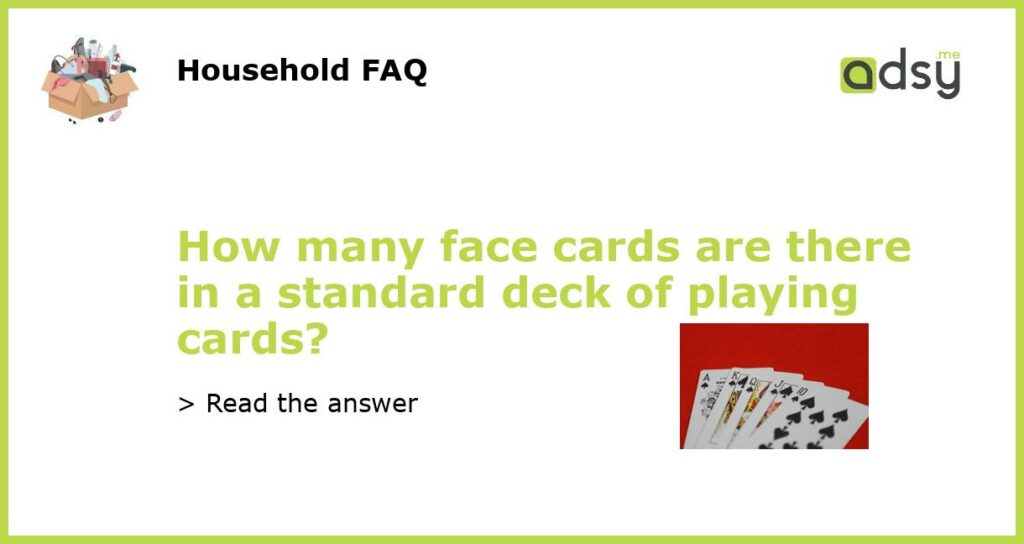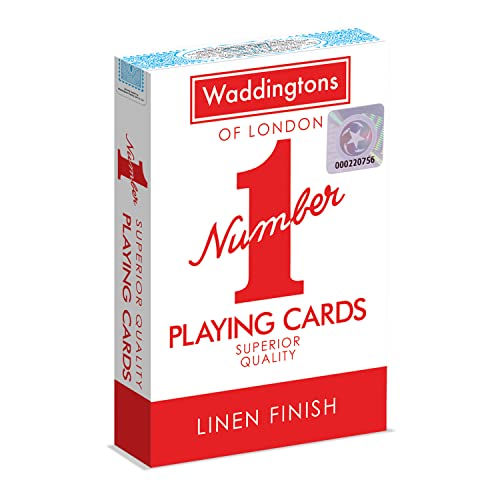A standard deck of playing cards consists of 52 cards. These cards are divided into four suits: hearts, diamonds, clubs, and spades. Each suit contains thirteen cards, which includes the face cards. In this article, we will explore the number of face cards in a standard deck of playing cards and their significance in various card games.
The Face Cards
The face cards, also known as “court cards,” are an essential part of a standard deck of playing cards. They add a unique element to various card games and have their own values and roles during gameplay. In a traditional deck, there are twelve face cards in total.
Face Cards in Each Suit
Each suit of a standard deck of playing cards contains three face cards – the king, queen, and jack. These face cards represent different ranks within their respective suits and often have specific abilities or powers in various card games.
In the suit of hearts, the face cards are the king of hearts, queen of hearts, and jack of hearts. In the suit of diamonds, the face cards are the king of diamonds, queen of diamonds, and jack of diamonds. In the suit of clubs, the face cards are the king of clubs, queen of clubs, and jack of clubs. Lastly, in the suit of spades, the face cards are the king of spades, queen of spades, and jack of spades.
Significance of Face Cards
Face cards are often given higher values or special abilities in many card games. For example, in the game of blackjack, the king, queen, and jack all have a value of 10. In poker, the face cards are ranked higher than numeric cards, with the ace being the highest card in the deck.
Additionally, face cards can also have specific roles and powers in certain card games. For instance, in the game of Bridge, face cards can be used strategically to communicate information with your partner. In games like Rummy or Canasta, face cards can be used as wild cards or jokers to complete sets or runs.
In summary, a standard deck of playing cards contains twelve face cards, with three in each of the four suits. These face cards carry special values, powers, and roles in various card games, adding excitement and complexity to gameplay. Understanding the significance of face cards allows players to strategize and make informed decisions during gameplay.






